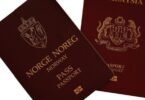You want to move to Germany? you should check out these permits. There are different permit categories with conditions related to required documentation, financial resources, health insurance, language competence, length of stay, etc. See below for more about each one. If you have plans of relocating to German, you can try any of these categories to be listed here. Relocating to a new country especially developed countries where visas are requested tend to be very difficult but there is absolutely no harm in trying.
Here is the list of general residence permit you can try to get..
- Education, School and Studies (Section 16) – This permit category is for people wishing to study in Germany at the graduate or undergraduate level. There is also a special German-language-study visa (valid for 3 months to one year and cannot be extended) which requires full-time instruction in Germany.
- Student Applicant – Only for students who have not yet been accepted by a German institution
- Self-employment/Freelance (Section 21) – Issued for a stay of up to 3 years. It can be extended under certain conditions. Covers almost any freelance field from artists to architects, from English teachers to musicians. Also entrepreneurs.
- Research (Section 20) – Up to one year or the duration of the research project. Must be tied to a specific research institution or university.
- Internship or Vocational Training (Section 17) – Only valid for the term of actual internship or training course. Can be extended for up to one year in order to find employment.
- EU Blue Card (Section 19a) – Since August 2012, for highly-qualified employment. Only applies to academics and university graduates. Requires a minimum annual gross salary of €56,800 (€44,304 for scientists, mathematicians and engineers, as well as doctors and IT specialists). Only valid for the term of actual employment, with a maximum of four years (can be renewed). Includes family members. Under certain conditions, the Blue Card can be converted into an unlimited settlement permit. For more, see this website: FAQ: The EU Blue Card (BAMF, German Federal Office for Migration and Refugees)
- Skilled Employment (Section 18) – Similar to the EU Blue Card, but for trade skills. Difficult for North Americans to get. In order to hire a non-EU citizen, a company has to prove to the German government that no one else in Germany or in the entire EU is capable of doing the job. Most people get this visa through an employer who has hired them, often a North American firm that is transferring them to Germany. Only valid for the term of actual employment.
- Job Search (Section 18c) – Allows you to reside in Germany for up to six months to seek employment. All related costs are your personal responsibility.
- Family Reunification (Sections 28 and 29 – spouse, parent or underage child) – For family members who want to enter Germany in order to join family already living in Germany. This is the category you would use if you are married to or plan to marry a German citizen. It is valid for 3 to 5 years, depending on certain factors.
- Settlement Permit for Highly Qualified Foreigners (Section 19) – Unlimited, permanent residence. Usually for people who had an EU Blue Card.
- Settlement Permit (Section 9) – This is the normal, unlimited, permanent residence permit (Niederlassungserlaubnis) that almost everyone wants. Normally granted only after 5 years residence in Germany, although under certain conditions, it can be granted earlier. Usually requires more than basic German language proficiency.






